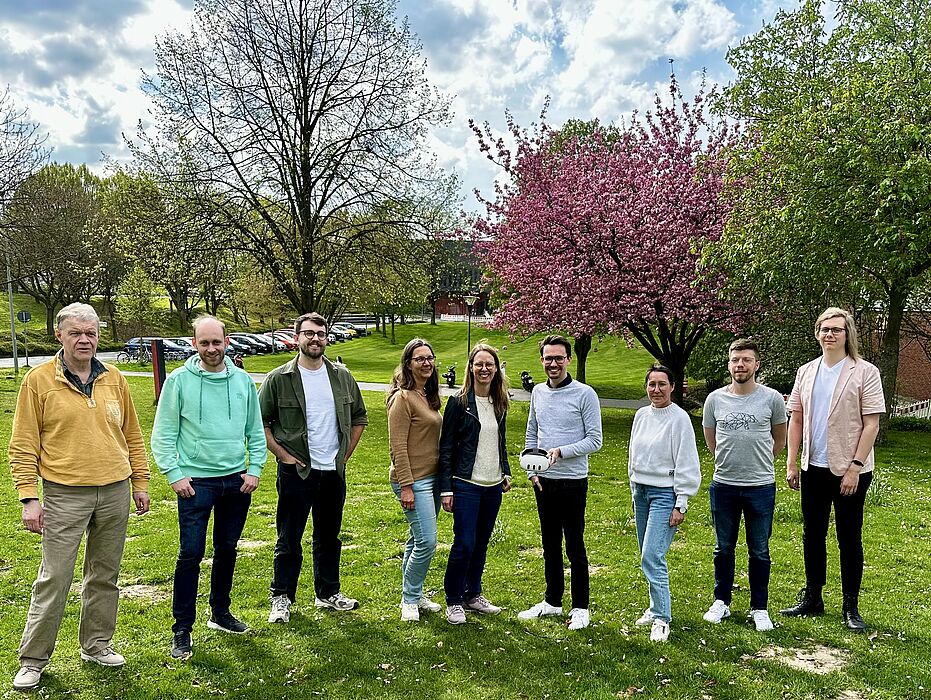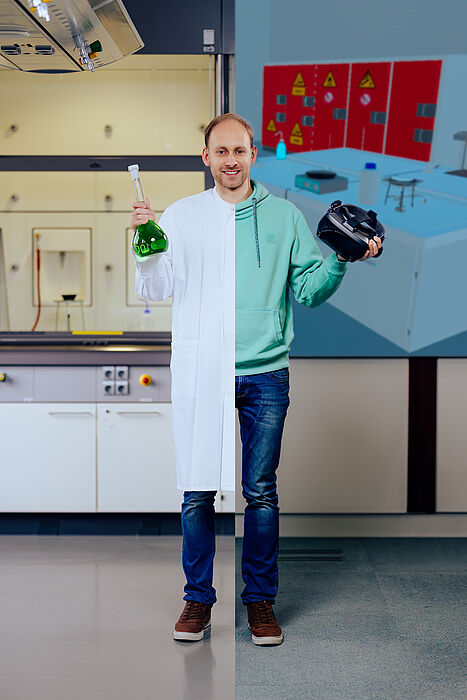Experiments with Bunsen burners and the like outside the laboratory buildings: this is possible at Paderborn University. Students can complete practical courses in the "VirtuChemLab" with the help of VR glasses and thus acquire basic scientific knowledge. This will soon be complemented by the use of artificial intelligence (AI). The "VRLabTutor" project was launched at the beginning of April. Under the coordination of Hendrik Peeters, research assistant in chemistry didactics, the virtual lab is being expanded to include an AI-based assistant that provides support and feedback. The project is being funded for two years with around 360,000 euros by the Foundation for Innovation in University Teaching (StIL) as part of the "FREIRAUM 2025" sponsors programme.
The existing "VirtuChemLab" laboratory already enables students to carry out chemical experiments in a realistic environment, regardless of time and place. A new addition is an adaptive, AI-controlled assistant in avatar form, which gives students direct, personalised feedback and answers questions about the experiments. A key feature of the project is the active role of the students: The AI assistant is being developed in an interdisciplinary collaboration between the Department of Chemistry Didactics and the "Theory of Distributed Systems" group at the Institute of Computer Science. Students on the Master's degree programme in Computer Science are significantly involved in the form of curriculum-based project groups. Regular user tests by chemistry students ensure that the AI assistance is optimally adapted to the needs of the users. "The project offers our computer science students a unique opportunity to develop innovative technologies such as virtual reality and AI in a practical way and to work directly with the users," says Dr Matthias Fischer, who is leading the project on the computer science side.
"Our aim is to use individual, AI-supported feedback to better prepare students for real-life laboratory situations and thus reduce possible uncertainties. In this way, we are specifically supplementing the real laboratory practicals and creating an innovative learning environment," explains project coordinator Peeters. Prof Dr Sabine Fechner, Professor of Chemistry Didactics, adds: "The individual, AI-based feedback not only helps students to practise basic procedures in the chemistry laboratory, but also raises their awareness of potential hazards and safety-relevant aspects in the real laboratory at an early stage."
Another special feature is the university didactic support. The Paderborn University's Office for Educational Innovation and University Didactics supports the team in transferring the findings across faculties, preparing them for university didactics and examining how they can be embedded in other teaching contexts. Iris Neiske from the staff unit emphasises: "A central aspect of our work is to actively evaluate the transfer of project results to other subject areas and contexts and to promote this by establishing a cross-faculty network."
By March 2027, the expanded "VirtuChemLab" will be evaluated and gradually integrated into existing courses and support facilities. A project-related website and social media will provide regular updates on progress. Following successful evaluation, the software will be published and established in teaching in the long term.




